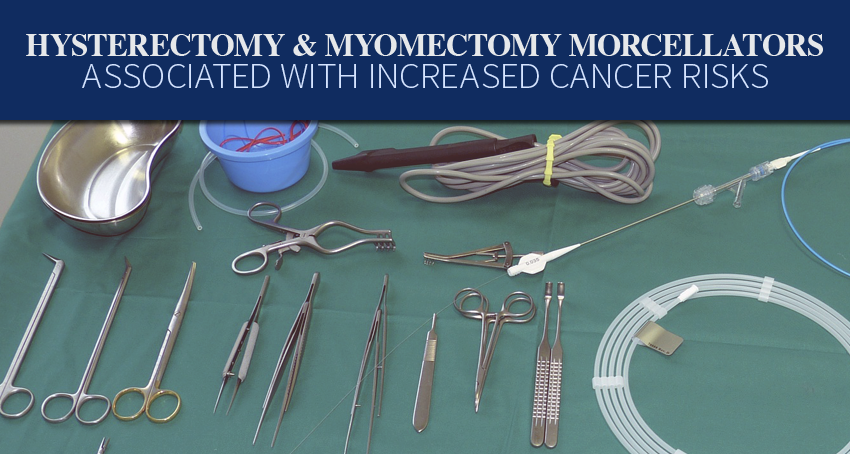Women who undergo laparoscopic hysterectomy and myomectomy procedures using power morcellation may be at risk for aggressive undiagnosed uterine cancers like leiomyosarcoma being spread throughout their body by the power morcellator device. If you believe you have been adversely affected by alleged side effects of power morcellation, you may be entitled to financial compensation for your injuries and medical expenses. Contact a knowledgeable product liability lawyer as soon as possible to discuss your options for legal recourse.

A power morcellator is an electric surgical instrument commonly used during laparoscopic hysterectomy and uterine fibroid removal (myomectomy) procedures, to cut up large masses of tissues and remove them through a small incision in the abdomen. When power morcellators first came to market, the devices were praised as a good alternative to more traditional surgical methods, as the devices allow surgeons to make minimally invasive incisions in the abdomen, rather than making large incisions through core stomach muscles. The medical devices were designed to reduce recovery time and limit the risk of surgical complications and post-operative pain. However, a growing number of adverse event reports have linked power morcellation to the possible spread of unsuspected cancerous tissue.
When power morcellators are used during hysterectomy and myomectomy surgeries, the uterus or fibroids are cut up into smaller pieces inside the abdominal cavity before they are removed from the body. However, as a growing body of research has shown, if any of these tissues contain hidden cancer cells and are not removed from the body, the undiagnosed cancer may spread throughout the pelvis and abdominal cavity, resulting in a significantly upstaged cancer and reducing the chances of the patient’s long-term survival. In one high-profile power morcellator case, Dr. Amy Reed, an anesthesiologist and mother of six, was diagnosed with advanced cancer following a hysterectomy procedure where power morcellation was used. Another case filed in Philadelphia federal court involved a woman who died of metastatic leiomyosarcoma after undergoing a hysterectomy with power morcellation, even though she previously showed no evidence of metastatic cancer.
In April 2014, the U.S. Food and Drug Administration (FDA) issued a safety communication warning against the use of power morcellation during hysterectomy and myomectomy procedures. According to the FDA, “it is estimated that 1 in 350 women undergoing hysterectomy or myomectomy for the treatment of fibroids is found to have an unsuspected uterine sarcoma, a type of uterine cancer that includes leiomyosarcoma. If laparoscopic power morcellation is performed in women with unsuspected uterine sarcoma, there is a risk that the procedure will spread the cancerous tissue within the abdomen and pelvis, significantly worsening the patient’s likelihood of long-term survival.”
In November 2014, the FDA updated its safety communication, indicating that the agency had conducted a review of published and unpublished scientific literature, in an effort to estimate the prevalence of unsuspected uterine cancer in women undergoing hysterectomy or myomectomy procedures. According to the updated warning, “the prevalence of unsuspected uterine sarcoma in patients undergoing hysterectomy or myomectomy for presumed benign leiomyoma is 1 in 352 and the prevalence of unsuspected uterine leiomyosarcoma is 1 in 498.” The FDA also noted that “Both of these estimates are higher than the clinical community previously understood.”
In response to warnings from the FDA regarding the potential for power morcellation to cause the spread of aggressive uterine cancer, Johnson & Johnson immediately suspended worldwide sales of its laparoscopic power morcellators, and other manufacturers of power morcellation devices are expected to follow suit. However, because the J&J recall was voluntary, and because the FDA has yet to issue an official power morcellation recall, many power morcellator devices may actually still be in use in the United States. If you underwent a hysterectomy or myomectomy procedure using power morcellation, and you have since been diagnosed with upstaged uterine cancer, contact the Monroe Law Group today to explore your possible compensation options.
Alert: Due to statute of limitations, the time you have to pursue a Power Morcellator claim is limited. Call us right away at 866-308-1092, email us at intake@monroelawgroup.com, or complete the form on this page now.